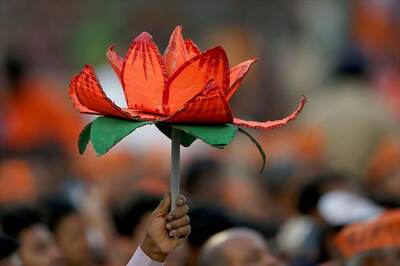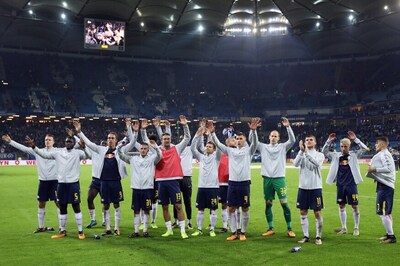
views
Eleven-year-old Indian Institute of Technology (IIT) Ropar is the highest ranked Indian institute in this year’s Times Higher Education Rankings 2020, placed in the 301-350 bracket.
The institute is a newcomer in the prestigious international league table thanks to its very high score for citation impact and reasonably strong showing on the industry income measure. Its score card reads: Teaching - 28.1; Research - 12.8; Citations – 100; Industry income- 36.2 and International Outlook - 18.0.
On its website, Times Higher Education says IIT Ropar maintains “a strong focus on research, especially in the fields of physics and artificial intelligence”. The university is home to numerous research labs and specialist equipment, and works hard to establish strong links with industrial partners, it adds.
Sarit Kumar Das, IIT Ropar director who joined the institute four years ago, speaks to News 18 about the research projects and rise of newer IITs. Edited excerpts:
Were you surprised when you learnt IIT Ropar is the highest-ranked Indian institute in this year's Times Higher Education Rankings?
Let me say, both yes and no. Yes, I was surprised because I did not expect to beat the older IITs. But I was confident that we were growing up in the ladder. I don’t completely see it as a surprise also because there were indications. Last year, IIT Indore got the highest rating and again, it was not one of the older IITs like Delhi or Bombay. And now this year it is Ropar – if it happened once it can be called a fluke but if it is happening again – from Indore to Ropar – then it is a trend for the newer IITs. This is not by fluke.
If it’s not by fluke, as you said, what do you think is working in favour of the newer IITs?
I would say, in the newer IITs, the directors are from older IITs. I have been a professor at IIT Madras for 20 years now. Likewise, the director of IIT Indore was professor in IIT Bombay. Long ago, when the older IITs started, they were primarily UG institutes. They changed themselves with time and brought in the research culture.
They are doing well in research. But the thing is, older IITs had to change from one mode to another and as a result, they could not change everything. The strength of newer IITs lies in the fact that they were research-based institutes. Today, IIT Ropar has 25 per cent PhD students. We have 2,000 students, of which 513 are PhD students. The older IITs like Madras, Bombay and Delhi had taken 50 years to reach this ratio, whereas we are here in a decade.
Newer IITs know that the way to compete in the world is to see how the world looked at research. There is a large number of people doing little about research in older IITs. I am saying this because I was the dean of research at IIT Madras.
Does the IIT administration look at the two world rankings – Times Higher Education and QS World University– in a certain way? Say, putting one ranking in a better bracket than the other?
In any ranking wherein research is given importance, the newer IITs are likely to do better, just as they did in Times Higher Education (THE) rankings. Whereas in QS World Ranking, the older institutes are likely to do better. What is the catch? It is not that one is better than the other. The reality is, they are different and have different parameters. Certain parameters can be questioned. For QS, perception matters and we cannot do much in this aspect as we are in Ropar … who knows where Ropar is? Whereas for THE, research and citations are important.
What is IIT Ropar doing to encourage quality research?
We got in touch with IIM Calcutta on establishing our focus towards research. Our focus was on quality, not quantity. We are number one in citations among newer IITs. There is internal funding, seed grants and we have also created verticals with specific focus on AI, healthcare, water, data, etc. I have bent rules to get faculty from outside India. There were 65 faculty members … today we are over 100 who are from across the world and performing well. We didn’t do that well in teaching faculty because we don’t have the numbers – 2,000 students, 11 departments … that kind of teaching strength is not there. The plus point is, our faculty average age is 38. They are young and bright.
Tell us about some interesting research projects from IIT Ropar.
Research should be of high quality and aligned to national interest. Our research is not just about citations but also about contribution to country, society and nation. Our students and the Indian Army have developed helmets that can be used for surgical strikes. They have memory, are good for night vision and communication, and if one is captured or dead the data will also be erased so that the enemy does not access the data. Recently, one of the generals visited us and gave a long list on what kind of research they are looking for.
Our students also held a workshop on Artificial Intelligence in defence, which was held in Madras headquarters. Apart from that, we are looking at research in water. If you look at the Punjab region, water mapping has not been done properly. There is a special lab for soil water investigations, crop pattern. The institute looks at civil engineering from a different lens. It is not just structures and construction, we focus on it from the point of view of environment.
We are also holding cluster meetings with various industries in Punjab and there will be more research in the coming future.




















Comments
0 comment